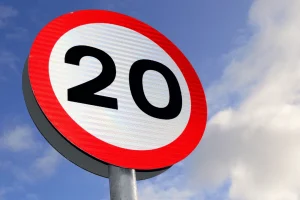SCRUFFY hackney carriage and private hire taxi drivers – such as those wearing faded clothing, baseball caps, or vest tops – could face written warnings under new licensing laws proposed by Welsh Government, a North Wales council.
At a Bodlondeb meeting today (Tuesday), Conwy’s licensing committee was discussing the new code of conduct and dress code for private hire and hackney carriage drivers set to be introduced by Welsh Government, as well as reviewing its street trading policy.
The committee noted and adopted the Welsh Government recommendations regarding drivers’ code of conduct and dress code.
Councillors were briefed on the new code of conduct, which included rules on drivers’ behaviour and vehicles being clean and tidy.
Committee members were also informed that, under the new proposed legislation, the authority could discipline drivers found to be wearing dirty clothes, shorts above the knee, or flip flops.
Glan Conwy councillor Sharon Doleman asked: “Regarding the written warning, if the dress code is not adhered to, would that be given to the individual taxi driver or to the proprietor of the taxi company?
“How is this going to be enforced? Some of this is subjective, I guess. Is it going to be in forced proactively or reactively?”
She added: “So are there going to be spot checks, or is it up to a customer who has noticed that a taxi driver isn’t very tidy or who has got the wrong footwear on to make a complaint? Because I would imagine, just looking at this, it is quite difficult to enforce.”
Licensing officer John Donnelly said: “With regards to enforcement, a written warning would go to the driver that is the offender. We wouldn’t necessarily inform their employer unless we deemed it appropriate.
“As is now, if a driver is offending in any way, we deal with the driver first, particularly with hackney carriages because they may be the sole proprietor. They may not work for anybody else.”
He added: “Private hire drivers may work for themselves but also be sub-contracted to a private hire operator. If it was a consistent problem, we would go to the next step and probably involve the operator or employer.”
He then said the council already carried out random checks to vehicles and drivers under the existing legislation.
He added: “We do random checks of an evening, daytime. We also work with school transport, so we are active on the ground, and we do inspect every vehicle and every driver within that vehicle at least twice a year.”
According to the new dress code:
- All clothing must be clean, in good condition, and free from damage
- Shorts and skirts must be no shorter than knee length
- Footwear must fit around the heel of the foot
- Hoods should not be worn over the head whilst driving
According to the dress code, unacceptable clothing includes:
- Clothing bearing slogans or graphics that are of an offensive/suggestive nature
- Clothing that is dirty, smelly, faded, or damaged
- Footwear such as flip flops or sliders that do not have heel straps
- Pronounced heels
- Baseball caps or other headwear that obscures the face
- Clothing that leaves the shoulders and top of the arms uncovered such as vest tops
- Clothing that does not cover the chest, stomach/midriff, such as low-cut tops or crop tops.
Examples of acceptable clothing include:
- Trousers/smart jeans
- Shirt
- Smart T-shirt
- Smart shorts
- Polo shirts
- Jumpers
A draft policy including the new proposed rules is set to be presented to the licensing committee in September.
















